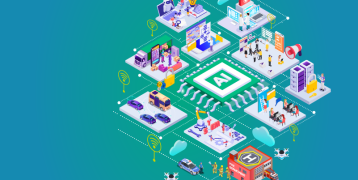Digital transformation of public services: key learnings
On 5 and 6 June 2024, the Policy Learning Platform organised a workshop on 'The digital transformation of public sector services' in Vilnius. The workshop provided comprehensive insights into the advancements and challenges in leveraging technology to enhance public administration.
What was the workshop about?
The workshop on digital transformation of public sector services, held in Vilnius on 5th June 2024, provided comprehensive insights into the advancements and challenges in leveraging technology to enhance public administration. The sessions emphasised the importance of data-driven services, interoperability, and GovTech innovations.
Key themes included the adoption of AI (Artificial Intelligence) to improve policy and service delivery, the role of European Digital Innovation Hubs (EDIHs) in supporting digital transformation, and the significance of upskilling public sector employees to harness AI effectively.
To learn more about this topic, explore the conclusions report our experts have prepared for you.
It contains insights related to interoperability, Artificial Intelligence, as well as inspiring Interreg Europe good practices and policy recommendations.
Featured projects
Featured good practices
Discover the good practices from Interreg Europe projects that we explored during the workshop.
AI and digital apps
The AI Foundation Certificate for Public Servants is a 12-week training program launched by Ireland's Department of Public Expenditure and Reform, aimed at equipping public sector employees with foundational AI knowledge. This initiative has successfully trained 61 civil and public servants, fostering innovation and ethical AI deployment in public services, such as managing healthcare waiting lists and enhancing medical training.
Silvana Perazzo, from the City of Genoa, Italy, presented how through the interregional cooperation journey undertaken during the BETTER project, focusing on Service Design methodology, the City achieved policy improvement and developed a new citizen-oriented digital solution. The Play Phygital app in Genoa merges physical and digital experiences to promote local development. It features virtual tours, gamified challenges, and real-time information about local attractions and events, enhancing visitor engagement and supporting the city's digital transformation efforts.
Digital strategies and Innovation Hubs
During the workshop, Roberto Sandrini from Veneto Region presented its integration of open data into their digital strategy, demonstrating both quantitative and qualitative impacts. Quantitatively, they established 234 Digital Facilitation Centers and trained 138,000 citizens, fostering widespread digital literacy. Qualitatively, they created Innovation Labs and Digital Gyms, serving as hubs for co-designing digital services and promoting data-driven social innovation. Practical examples include using open data for developing new public services, such as improving healthcare delivery and urban planning, enhancing both efficiency and transparency in public administration.
In his presentation, Álvaro Gil, from Galicia Innovation Agency highlighted the role of EDIHs in enhancing public services. EDIHs act as one-stop shops, assisting public administrations in adopting digital innovations through services such as testing, investment support, skills training, and networking. Notable examples include HealthHub Finland, which focuses on digital solutions for health and wellbeing, and ER2Digit in Emilia-Romagna, supporting digital solutions for public services.
Presentations
For more information on the good practices, download the presentations bellow.










